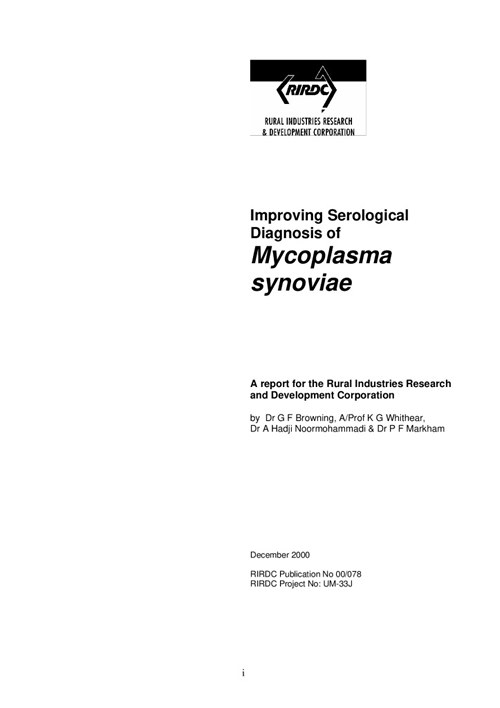Mycoplasmosis continues to be a major disease afflicting the poultry industry. In recent years control has been significantly improved with the development of temperature sensitive mutant strains of both M. gallisepticum and M. synoviae by the Department of Veterinary Science, The University of Melbourne, and both vaccines are now widely used in the industry.
However serological diagnosis of infection and assessment of effective vaccination continue to rely on rapid slide agglutination as a field test, and ELISAs for confirmation. Both of these assays have significant limitations. Current assays rely predominantly on whole bacterial cells as a source of antigen, and due to antigenic similarity between M. gallisepticum and M. synoviae, neither are totally specific. Furthermore the rapid slide agglutination test also has a significant level of false positive reactions, particularly when certain vaccines have been used.





